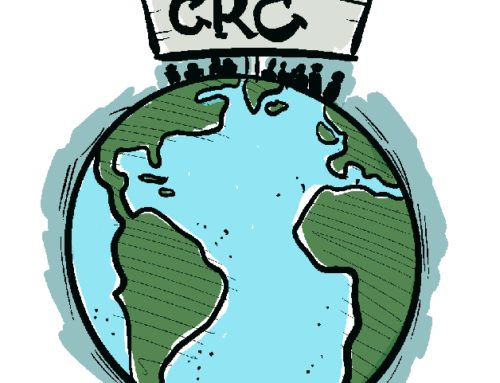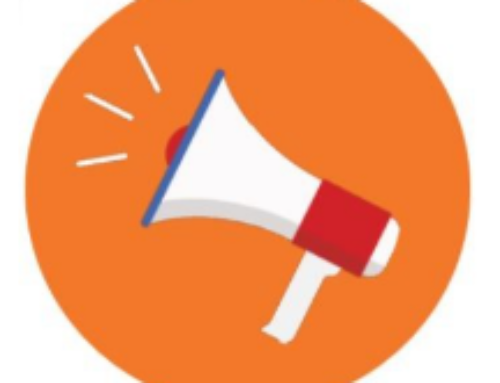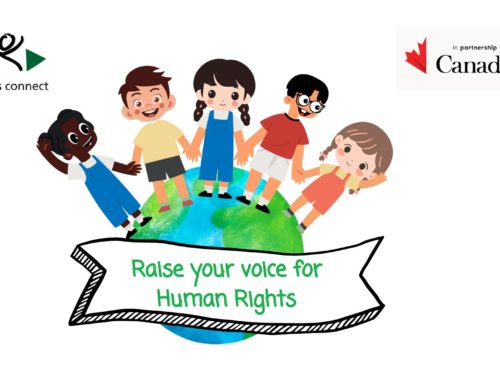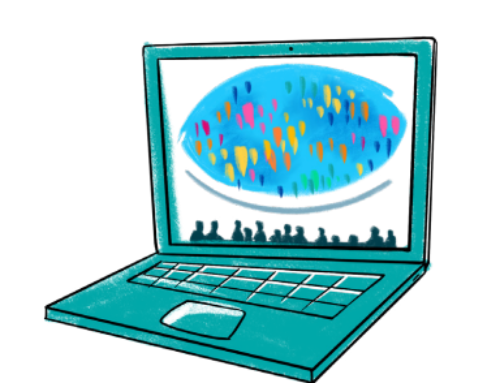This year’s Annual Day on the Rights of the Child reached the highest level of child participation so far! This edition, the discussions concerned two topics: Inclusive Social Protection and Child Rights Mainstreaming at the United Nations.
On 14 March, the Annual Day on the Rights of the Child took place in the Human Rights Council. The focus of this year’s edition was dual. The morning panel discussed children’s rights and inclusive social protection while the afternoon panel assessed how child rights are mainstreamed in the United Nations.
Both panels ensured child participation with Marie-Reine (13, Togo), supported by Plan International and Sheyla (17, Peru), supported by World Vision representing the voice of children on the panel on inclusive social protection and Vasile (17, Moldova) doing so for the panel on child rights mainstreaming. also encouraged child participation both in-person and via video recordings by allocating their speaking slot to child representatives. From civil society, the following members Plataforma para la infancia, Hopes and Homes for Children, Fondation Apprentis d’Auteuil International and World Vision supported children from Bosnia Herzegovina, Madagascar, Moldova and Spain. This year five States supported Children; Lithuania, Luxemburg, Spain, Slovenia and Romania.
For the dialogue on inclusive social protection, Marie-Reine and Sheyla exchanged with other experts, Ms. Regina De Dominicis (UNICEF) and Dr. Bruce Aylward (WHO), on challenges and opportunities for the full exercise of children’s right and their access to social protection. The panellists delivered strong statements and drew attention to the issues children face based on the challenges they see in their communities.
Marie Reine raised concern about persisting obstacles in access to healthcare as well as the taboos about reproductive health in her community which cause many girls from leaving their education behind. Her recommendations to States? Build and equip health centers and friendly listening centers for adolescents and young people; Facilitate access to healthcare through universal health insurance, especially for children from poor families and disabled children; Support civil society organizations fighting for children’s rights by funding their social and development projects; Introduce comprehensive sex education into school curricula and organize more awareness-raising sessions and educational talks on social protection issues.
“As a local saying goes, “A decision made for me, without me, is against me”. I would simply like to say that children feel more responsible when they are involved in decisions that concern them. To this end, the renewal, training and financial support for the implementation of action plans for children’s consultative councils is essential.” – Marie- Reine (13, Togo)
For Sheyla, access to education remains a priority. Especially in her home country Peru where the current drop-out rate is 6.3%. Children leave school because of low economic resources of families, inadequate parenting support to families, increased drug use and therefore low school performance. Sheyla requested governments to improve educational policies, increase the budget, create more programs that support children with resources, create more jobs to improve family income and prevent children from having to work. Moreover, training of teachers to educate children and adolescents of the 21st century is of outmost important according to her.
“We are the ones who are going to revolutionize the world that aims at social justice; as long as we are seen as people who are part of a community and not as a burden, physical and psychological abuse against us will decrease, and only then will we be able to break down each of the barriers set up by society.” – Sheyla (17, Peru)
In the afternoon, the following experts were invited to share how they have contributed to child rights mainstreaming by the UN as well as recommendations, High Commissioner Volker Türk, Ms. Ann Skelton, Chair of the Committee on the Rights of the Child, Ms. Shaheen Sardar Ali, Member of the Independent International Fact-finding Mission on the Islamic Republic of Iran and Ms. Pernille Fenger, Director of the United Nations Population Fund Representation Office in Geneva.
Vasile, supported by CRIC, shared his experience as a child human right defender (CHRD) and his interactions with the Special Rapporteur on Human Rights Defenders Mary Lawlor. Vasile was part of a broader consultation of the Special Rapporteur with children and youth at the Vienna Conference to celebrate 25 years of the UN Declaration of Human Rights Defenders. The recommendations of this group of 40 children and youth influenced the Special Rapporteur to make them the focus of her most recent report on children and youth human rights defenders. Despite this positive experience of child rights mainstreaming in the UN, Vasile also highlighted the remaining obstacles such as a lack of opportunities for children to be heard, lack of child-friendly information and documents and short deadlines which prevent children from providing input.
“The good experience that I shared before, happened. Thanks to the local and international NGOs that supports me to take part in this event. The UN and the States must promote inclusive child participation, which enables children from different backgrounds to participate in international events and share their perspectives. Their experiences may differ from mine. “ – Vasile (17, Moldova)
Besides Marie-Reine who is a child advisor of Child Rights Connect, Anghelina (17, Moldova) also delivered a statement at the ADRC on behalf of our Children’s Advisory Team explaining their involvement in the work of the UN last year such as through the UDHR75 initiative.
“As a child myself, I know how hard it is to face violence and worldwide issues without being supported and given the opportunity to express my vision, propose my solutions, and raise my voice. As we face crises in climate change, peace, security, and education, prioritizing child participation, access to information and the opportunities to speak up is imperative. Remember, we are stepping into a new era of human rights, where children are the fully-aware rights stakeholders and the vital part of our shared future.” – Anghelina (17, Moldova)
This sentiment was also echoed in the joint statement of our Working Group on child participation which was delivered during the child rights mainstreaming panel.
As Child Rights Connect, we wish to thank all partners and members who made the participation of the child participants possible at this Annual Day on the Rights of the Child and hope that this remains a space for children to engage on topics that concern them in upcoming .
What is next for these agendas? When it comes to inclusive social protection, the adoption of the resolution on children’s rights and inclusive social protection is foreseen by the end of this Human Rights Council session. The OHCHR will also organize its second World Summit for Social Development in 2025 on which the OHCHR gender unit is organizing consultations. When it comes to child rights mainstreaming, the resolution on inclusive social protection currently being negotiated looks at strengthening the OHCHR to implement the Guidance Note of the Secretary General on child rights mainstreaming, such as by expanding the capacities of the OHCHR in regard of child participation and child safeguarding and by requesting the UN High Commissioner for Human Rights to prepare a report on child rights mainstreaming across the UN.
You can access the webcast of the morning panel here and the afternoon panel here.










Leave A Comment